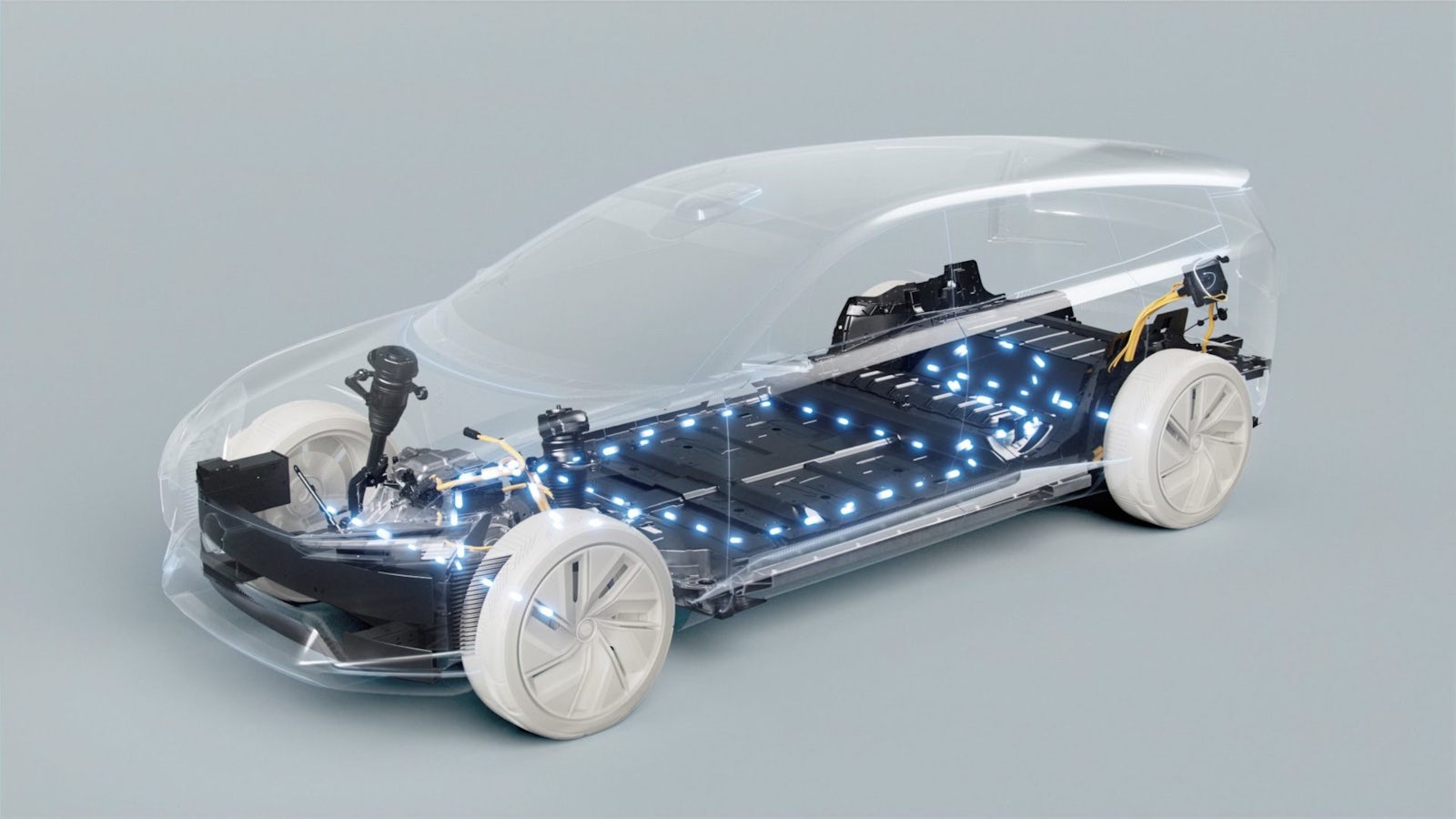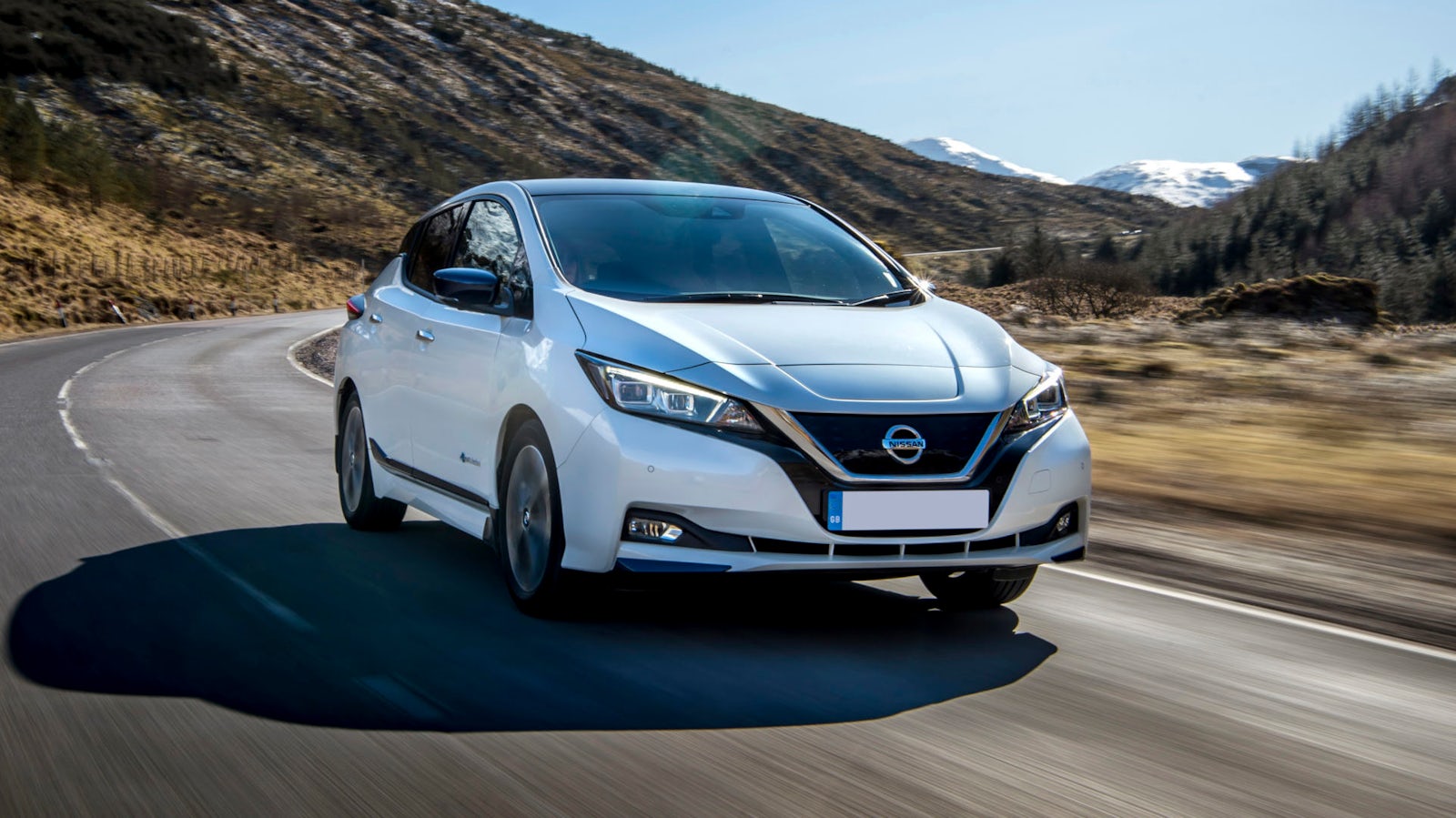How long do electric car batteries last?
May 09, 2022 by John Tallodi

Electric cars have the potential to drastically reduce your daily running costs, and they require very little maintenance compared to a petrol or diesel car. However, at some point the battery will need to be replaced.
As a rough guide, this will happen after 10 – 20 years. The exact date will depend on things like the method and percentage of charging, number of charge cycles and mileage covered. This guide will walk you through the life of an EV battery, as well as what you can do to prolong it.
Why do electric car batteries degrade?
Electric car batteries use lithium-ion technology, similar to your mobile phone. And just like your phone, they slowly degrade over time. Constant advances in technology and the sheer size of an EV’s battery mean it doesn’t happen quite so rapidly.

The chemical makeup of the lithium-ion cells means that they start degrading from the moment they are made. When used in an electric car, the average degradation is 2.3% each year according to a study of 6,300 EVs by Geotab, a telematics company.
In practical terms this means that an EV with a 300-mile range should still be able to travel around 231 miles between charges after 10 years.

Maths boffins may have noted that a 2.3% battery degradation should give a battery a life of 43.5-years before it is completely flat, but most manufacturers consider a battery’s end-of-life state to be at approximately 70% efficiency.
This equates to around 13-years, although there are a number of things you can do to help extend its life beyond this figure. Geotab says annual degradation of just 1.6% is possible, getting you to that 70% replacement figure in 18.7 years.
Do electric car batteries come under warranty?
Every EV manufacturer offers a separate electric battery warranty over and above the usual warranties covering the rest of the vehicle.
The majority of manufacturers offer an eight year/100,000-mile warranty on their battery packs and will either restore or replace them if their State of Health (SOH) falls below 70% during this period. Each major EV manufacturer’s battery warranty is listed in the table below*:
| Make | Time | Mileage | Battery Repair/Replacement Level |
| Audi | Eight years | 100000 | 70%-78% mileage and age dependant |
| BMW | Eight years | 100000 | 70% |
| Honda | Eight years | 100000 | 70% |
| Hyundai | Eight years | 125000 | 70% |
| Kia | Seven years | 100000 | 70% (65% from 1 August 2019) |
| Mercedes | Eight years | 100000 | Model dependant |
| MG | Seven years | 80000 | 70% |
| Jaguar | Eight years | 100000 | not specified |
| Nissan | Eight years |
60000 (24kWh Leaf)
100000 (30 & 40kWh Leaf) |
Refurbish battery to 75% if it falls below this figure |
| Polestar | Eight years | 100000 | 70% |
| Peugeot | Eight years | 100000 | 70% |
| Porsche | Eight years | 100000 | 70% |
| Renault | Eight years | 100000 | 70% |
| Seat | Eight years | 100000 | 70% |
| Smart | Eight years | 62500 | 70% |
| Tesla | Eight years | 120000 (Model 3 and Y) 150000 (Model S and X) | 70% |
| VW | Eight years | 100000 | 70%-78% mileage and age dependant |
| Volvo | Eight years | 100000 | not specified |
How to extend an electric car battery lifespan

Just as there are a number of methods to extend the life of your internal combustion car, you can also follow a few simple tips to get a longer service life out of your electric car battery.
- Don’t plug your car in at every opportunity – doing so puts unnecessary stress on the battery. Only charge it when required.
- Try to never let the battery go completely flat – this will damage the battery cells and lower the overall capacity.
- Aggressive driving is detrimental to battery health – it discharges your battery faster and heats it up too, both will slowly erode the maximum capacity over time. So be careful how many times you show off your EV’s acceleration to your friends.
- Fast chargers may be convenient, but they can shorten your battery’s lifespan – Level 3 DC fast chargers are great, but they heat up the battery more than a slower home wall charger and regular use can decrease the battery’s total capacity. Porsche recommends that you do not charge the car above 80% when using a fast charger.
- Keep the battery charged between 20 and 80 percent – Unless you are going on a long trip or need the additional capacity, don’t charge your battery to 100% at every opportunity. Letting the charge go below 20% regularly is also not recommended. Doing this will reduce the total capacity of the battery over time. Some EVs and charging stations allow you to set the charging percentages so you don’t have to worry about overcharging when you don’t need the extra range.
- If you are planning on storing your electric car for an extended period, leaving it charged to around 50% will help prevent the battery cells from becoming damaged. Extremes in temperature affect the range of an EV, but very hot temperatures will also degrade the battery. That is why it’s best to store your electric car somewhere cool. It will lose a small amount of charge over time but should last for many months before going flat. Just be sure to turn off any unnecessary features that may drain the battery too low and potentially damage it.
When to replace an electric car battery
As seen in the table above, most manufacturers consider a battery to be at the end of its useable life when its State of Health (SOH) reaches between 60% to 70%.
This may seem like an unusually high figure, but when a lithium-ion battery gets to this level, it may struggle to hold its charge effectively and can discharge more rapidly when a lot of power is being drawn from it. You may not always be able to check the SOH percentage on your own so may have to go to a dealer to get a battery health check done.
When it comes to replacing your battery, the cost will depend on its size and the labour charge to have it done. This makes it extremely difficult to give an exact figure, but most studies estimate that it will cost about £4,500 on average.

The average cost per kWh is approximately £105, this figure should slowly decrease as technology improves which will see a knock-on effect on battery replacements costs as well.
Some batteries feature a modular design, which means that it is possible to replace only the damaged cells instead of the entire battery pack. Whether this will be an option come replacement time depends on each specific case.
Certain manufacturers also allow you to lease the battery from them, paying a monthly fee to ensure that it is kept within specifications. Another way to avoid worrying about potentially having to pay a hefty sum for a replacement battery is to buy a new car and let the manufacturer’s warranty cover you.
What happens to electric car batteries?
Old electric car batteries can potentially be used as electric power storage in a number of applications from households to businesses. Auto manufacturers like Nissan and VW already use old EV batteries in their factories to power equipment.

There are also recycling projects either in place or being developed to account for the millions of old electric car batteries that will eventually need to be dealt with. Renault already does this through a conglomerate of French and Belgian waste management firms, offering recycling services for electric car batteries regardless of the manufacturer.
Converting old electric car batteries to power your home is possible as there’s still enough life left in even smaller batteries to power your home for a couple of days. Paired with solar panels this setup could even save you some money in the long run. Powervault, a British energy storage manufacturer, has already partnered with Renault and Nissan to reuse their old EV batteries in their home power backup systems.
Electric car battery FAQs
What is an electric car battery made of?
Just about every commercially available electric car battery is comprised of a number of densely packed lithium-ion batteries. There are minor differences between manufacturers, with some using Lithium nickel cobalt aluminium oxides while others prefer Lithium iron phosphate.
How big is an electric car battery?
Physically, the battery pack weighs around 454kg and will take up most of the space under the floor between the wheelbase of the car.
In terms of capacity, most automotive battery packs range between 30kWh and 100kWh, the larger the capacity the more it weighs.
Are electric car batteries bad for the environment?
The resources required to manufacture batteries can and often do harm the environment. While electric and conventional cars both require manganese and copper, electric vehicles also need far larger quantities of cobalt, lithium, nickel and graphite.
Just as the method of electricity production can drastically affect how environmentally friendly an EV is, so too does the way in which these minerals are mined.
Shortening supply chains, and new technologies like cobalt-free batteries all go towards lowering the environmental impact of electric car battery production.
Are electric car batteries recyclable?
Yes. Motor manufacturers and waste disposal firms are already developing methods to recycle electric car batteries on a large scale. Currently less than 5% of the world’s lithium-ion batteries are recycled but this will change as electric cars become more prevalent on the roads.
Aside from being recycled for their base metals once they are past their usefulness, electric car batteries are also being repurposed as electric storage devices in households and factories.
How long do electric car batteries last on one charge?
That depends on the capacity of the battery and how the car is driven. A Tesla Model S has a large 100kWh battery pack which can deliver an estimated range of 405 miles on a single charge. At the other end of the scale, the Honda e has a 35.5kWh battery which provides around 137 miles between charges.
In general, driving slowly in the city without using too many energy-sapping features (air-conditioner, heated seats) will yield the best results, while fast motorway driving will deliver the shortest range between charges.
Buy your next car (and sell your old one) with carwow
Once you’ve decided on which electric car is best suited to your needs then take a look at the latest offers on your preferred model through carwow.
A network of trusted dealers will come to you with their best offers. There’s no need to haggle or negotiate and you can compare your offers in one place without even having to leave your home.
If you’re thinking of selling your old car, you can do that through carwow, too. Again, a network of dealers will come to you with their best offers for your vehicle — no haggling, no fuss, and the price you’re offered is the price you’ll get. The dealership will make payment and collect your car.
*Correct at the time of writing















